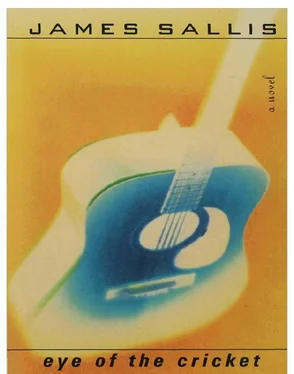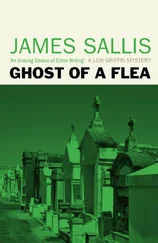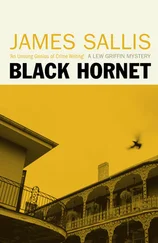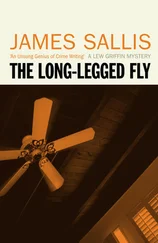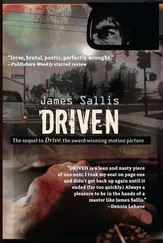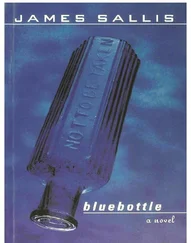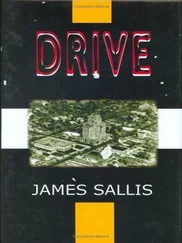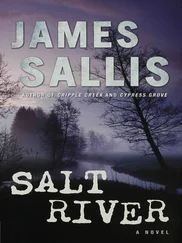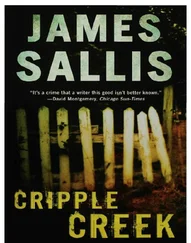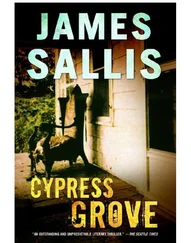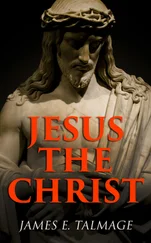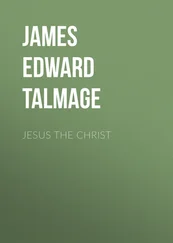James Sallis - Eye of the Cricket
Здесь есть возможность читать онлайн «James Sallis - Eye of the Cricket» весь текст электронной книги совершенно бесплатно (целиком полную версию без сокращений). В некоторых случаях можно слушать аудио, скачать через торрент в формате fb2 и присутствует краткое содержание. Жанр: Криминальный детектив, на английском языке. Описание произведения, (предисловие) а так же отзывы посетителей доступны на портале библиотеки ЛибКат.
- Название:Eye of the Cricket
- Автор:
- Жанр:
- Год:неизвестен
- ISBN:нет данных
- Рейтинг книги:3 / 5. Голосов: 1
-
Избранное:Добавить в избранное
- Отзывы:
-
Ваша оценка:
- 60
- 1
- 2
- 3
- 4
- 5
Eye of the Cricket: краткое содержание, описание и аннотация
Предлагаем к чтению аннотацию, описание, краткое содержание или предисловие (зависит от того, что написал сам автор книги «Eye of the Cricket»). Если вы не нашли необходимую информацию о книге — напишите в комментариях, мы постараемся отыскать её.
Eye of the Cricket — читать онлайн бесплатно полную книгу (весь текст) целиком
Ниже представлен текст книги, разбитый по страницам. Система сохранения места последней прочитанной страницы, позволяет с удобством читать онлайн бесплатно книгу «Eye of the Cricket», без необходимости каждый раз заново искать на чём Вы остановились. Поставьте закладку, и сможете в любой момент перейти на страницу, на которой закончили чтение.
Интервал:
Закладка:
Crossing Canal, prow of my own bateau ivre breaking through floes of tourists in fanny packs and sensible shoes consulting city maps and Greyline schedules, I moved downstream towards the river's thirsty mouth. Where paddle-wheelers kept slow count of bodies walking planks into them and ferries struck out every half hour, swimming frantically overhand, for far Algiers. Slaves fresh from Africa were held there before being brought over to the Quarter for sale. Everything they knew and understood was gone. Stacked belowdeck like logs, awash in their own refuse, they'd emerge blinking, caked with grime and reeking. So much for the joys of a sea cruise.
Amazing Floridas! Hideous wrecks at the bottom of brown gulfs! Eveiy dawn-every last one of them-heartbreaking.
Here I am now on Decatur, walking narrow sidewalks beneath balconies off the apartments above, past bars with front doors propped open and cats aperch on rear half-doors into kitchens through which can be ordered shrimp, special luncheon plates, fried onions, peppers and potatoes, muffalettas heaped with olive salad, thick po-boys, daiquiris, beer.
Here again, walking up Esplanade in thrall to gentrification. Security gates, doormen and keypads everywhere in evidence now, where brief years ago columns on swayback porches had burst with onion plants and whole floors been chopped indiscriminately (bathtubs in kitchens, walls of sagging plywood) into low-rent rooms.
On into the Faubourg Marigny. After several decades' disuse and crumble, shotgun houses down here again are inhabited, bikes, motorcycles and hibachis out front bespeaking occupation, clothes and hammocks hung from lines and fences out back confirming it, new paint, new cement steps. No trees or greenery. Houses like books on a shelf. This part of the city resoundingly gay. Strips of alternative bookstores, vintage clothing shops, specialty restaurants, bars and galleries, a fine storefront theater, perhaps most of all the headquarters for NO Aids, make a true neighborhood of it-one in which Richaid Garces felt at home. Making me wonder what neighborhood, what community, I might ever feel at home in.
None, maybe. God knows I'd tried enough of them.
Years ago I'd bitten off a part of the great American dream I could never swallow. I was still chewing on it.
"Tween what we see, what be," John Berryman wrote in The Dream Songs, "is blinds. Them blinds' on fire."
Convenience kills, I'd seen spray-painted on the side of a K amp;B.
And I, powerless, unhappy, could find nothing to put out the fire. Ask the first dog you meet in the street.
That second night I slept in the Faubourg's block of a park, wakened just past dawn by the rattle of chains being unwound from steel gates. Someone stood over me looking down. I heard his breath coming and going, smelled the cup of coffee he'd just drunk, traces of musk from early-morning sex. Should he speak or keep his peace?
(Why do you cry? Are we not happy? Nietzsche asks, momentarily catching the eye of the sister who cares for him.
No, Friedrich, we're not. Nor will we ever be. Children afraid of the night who have never been happy or good.)
I listened to the park guardian's footsteps pass away, noting how he kept to grass, avoiding cement walks. In one of the apartments overlooking the park a fresh cup of coffee, a baguette or pretzel put into the oven to warm, a lover or companion, awaited him.
I started back up Frenchmen towards the Quarter.
Forlorn horn from the river just blocks away. Some outbound ship awaiting bodies.
Tell me at what time I must be earned aboard.
32
That whole day I strayed through the city, seeing it as though for the first time. Fresh off one of the ships, without even language to contain this experience, codify it. A painter onceremarked that seeing consists of forgetting you know the name of the thing that's seen.
I remembered the voiceover beginning Tavernier's Deathwatch and circling back at the end. Harvey Keitel's eyes have been replaced with cameras. Eveiything towards which he turns his head now is captured, caught: he's become the ultimate artist. "He told me he spent that whole day walking…" Keitel like Oedipus by movie's end, blind yet-because from some immeasurable mix of guilt and love he chose that blindness-humanized.
Soon too, like Keitel's character, I found myself in a mission, upper bunk near the back of the dorm, after a dinner of vegetable soup heavy on cabbage and white beans, two slices of white bread piled atop, mug of coffee, the whole of it consumed in the shade of your basic Fundamentalist ranting. Recalling all those youthful Sundays back home, packed into my suit (pajamas worn under, suit scratchy wool like Mom's army-surplus blankets) and clip-on tie, pantseat polishing hardwood pews under stained-glass windows illustrating the parable of the talents, Jesus bringing in sheaves, the prodigal son, stone rolledback from the tomb.
I'd been here before. Last Thursday, following up on the list Richard Garces gave me. The guy who finallyadmitted well, yes, he did kind of look after things (nowhere in evidence now, I noticed) had shown me around, guided me to boxes of books stacked in the hall by his own cramped room.
It all looked substantially different now, of course. Perspective is everything.
Lights-out was at ten. Then you lie listening to bodies turn on the spit of their memories, volleys of farts from newly challenged digestive systems, the occasional scream or convulsion, conversations so private that only one person's involved. You feel the rasp of coarse blankets, monitor the thunderlike rumbling of your own bowels. You're asleep, then awake, then asleep again but aware you're dreaming: another border given way.
What time of night is it? No way to know. Have you slept an hour? Four hours? Ten minutes?
A single bare bulb hung at the back of the hall, eclipsed as pilgrims shuttled back and forth to the bathroom. Then they'd settle back into beds hawking, hegiras having stirred up various sediments in chest and head.
Never more alone than at 3 A.M. Wake without reason, night's face staring you clown. ERs fill with patients. Men my age suddenly alert, certain that the pain in their aim's a heart attack.
Dim residual light from outside, lash of car headlights. Someone moving below me. A voice.
"You okay up there, man?"
"What?"
"Been slam-dunkin' yourself for the better part of an hour now."
"Sony."
"Hey. No problem. God knows I'm used to it."
"Come here often, do you?"
"Regular Soup Kitchen Sam, yeah."
"Don't guess you know what time it is."
If I'd had a brother, this was the way it might have felt. Parents elsewhere in the house. Two of us up here in the crow's nest holding out against the world.
"Three-eighteen."
Okay. So that morning light in the window's only imagination. Too much night left.
"Name's Griffin, right?"
A beat went by. Two beats.
"Word is, you're a good man. What everyone says. What they don't know is why you'd be down here now, way you are."
I give up. Don't know, myself.
"My grandmother used to tell me how this collector'd come 'round. Tell her records show she owed some arrears. He'd stay to drink a cup of coffee, then after he was gone she'd lift up the napkin, find a five-dollar bill there."
"Heard the same story about Pretty Boy Floyd."
"Right. People be callin' you Pretty Boy Griffin soon." He laughed. It sounded like someone choking. "You ain't though."
"Pretty boy?"
Same laugh. Neither of us said anything for a while. Lay listening to the bodies around us.
"Grandmother raised me. Neither one of us ever knew where my mother might've got off to. Never developed much feeling for people-maybe because of that, who knows? Mostly dog meat, from my experience. Scrape out the bowl. But I purely loved that woman."
Читать дальшеИнтервал:
Закладка:
Похожие книги на «Eye of the Cricket»
Представляем Вашему вниманию похожие книги на «Eye of the Cricket» списком для выбора. Мы отобрали схожую по названию и смыслу литературу в надежде предоставить читателям больше вариантов отыскать новые, интересные, ещё непрочитанные произведения.
Обсуждение, отзывы о книге «Eye of the Cricket» и просто собственные мнения читателей. Оставьте ваши комментарии, напишите, что Вы думаете о произведении, его смысле или главных героях. Укажите что конкретно понравилось, а что нет, и почему Вы так считаете.
